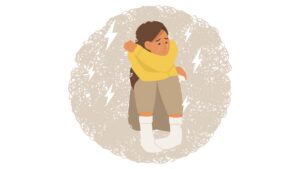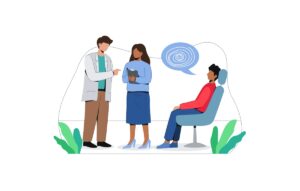As humans, we need to learn the difference between debate and dialogue. The Program on Intergroup Relations at The University of Michigan1 defines dialogue as a collaboration between two sides to come to a common understanding, while debate is oppositional; both sides have the goal of proving the other wrong. How can we maintain a dialogue with peers who may hold a different opinion, while preventing the devolution to a debate?
The University of Colorado2, Boulder provides some helpful tips in their 2023 release: “How to talk to others with a different point of view.”
- Approach the conversation with an open mind. Each person you interact with has had their thoughts shaped by their experiences. While you may hold a different worldview, it is important to understand how someone’s background plays into their opinions.
- Listen first and speak second. Simply listening to retort can lead to a fracture in the conversation. Try to allot your peers your undivided attention and listen to their perspective; not to craft your argument, but to understand theirs. It is important to set the expectation that other students provide you with the same privilege early on to craft an effective dialogue.
- Utilize effective communication skills. Show interest in your peer’s statements, attempt to reflect on what was said, and ask for clarification if you misunderstood certain points. If they bring up a point that you can agree with, affirm them.
- Ensure both sides ask open-ended questions, presenting an opportunity to expand upon statements, and summarize the conversation at the end.
- Focus on the positive connections made and thank them for taking the opportunity to have this conversation!
Try as we might, sometimes an argument is inevitable. In Yasmyne Ronquillo’s 2023 article3, “Conflict Management,” two conflict management styles stand out as the most effective in promoting healthy discussion: compromise and collaboration.
- Compromise: In this scenario, often called a “lose-lose” situation, neither side fully reaches their goal. While the conflict may seem resolved, the result will only lead to further dissatisfaction on both ends.
- Collaboration: A “Win-Win” option, collaboration will always lead to the best result on both sides. By utilizing the skills used to avoid an argument, both sides can agree on a shared preferred outcome. Though the outcome may be different than the initial goals, the agreement reached should still leave everyone satisfied.
While it may seem easy to discredit those who see the world differently than yourself, it is important to realize that common ground can still be found. By employing the discussion skills outlined above, we aim to host productive conversations and bridge the gap between people with different views. Even when a conversation may break down, we can still engage in meaningful collaboration to contribute to an agreeable solution.
Engaging in difficult conversations can feel draining and leave you feeling worse than when you started. At Protected Roots Integrative (PRI) Treatment Center in La Jolla, CA, we utilize evidence-based interventions to teach effective communication skills and stress management strategies. Through a holistic and personalized approach, PRI can help you navigate difficult conversations in your life when they arise, whether it is preparing for it ahead of time or managing the aftermath of managing it poorly on your own and learning to improve for future difficult conversations.
References:
- University of Michigan, Ann Arbor. (n.d.). Comparison of dialogue and debate. Comparison of Dialogue and Debate. https://www.iup.edu/teachingexcellence/files/teaching_resources/diversity_in_the_classroom/dialogue-discussion-debate-1-1.pdf
- University of Colorado Boulder Division of Student affairs. (2023, October 9). How to talk to others with a different point of view. Division of Student Affairs. https://www.colorado.edu/studentaffairs/2023/10/09/how-talk-others-different-point-view
- Ronquillo, Y., Ellis, V., & Toney-Butler, T. (2023, July 3). Conflict management. National Library of Medicine.

Dr. Warter received his doctorate in Clinical Psychology from The Wright Institute in Berkely, California, completed his Predoctoral Internship at USC’s Children’s Hospital Los Angeles, and was a Postdoctoral Researcher at USC’s Institute for Integrative Health and Wellness. Dr. Warter has also been trained at UCSF School of Medicine, Kaiser Permanente, and in community clinics in rural, underserved communities in Argentina and Paraguay. Dr. Warter has received training in providing parents with guidelines to help prevent behavior problems and enhance communication skills and strategies to promote children’s social, emotional, and academic competence. Dr. Warter has also published and presented at the University of Naples and the University of Buenos Aires on subjects related to Third Culture Kids and the impacts of Social Media on Personality and Self Esteem.






